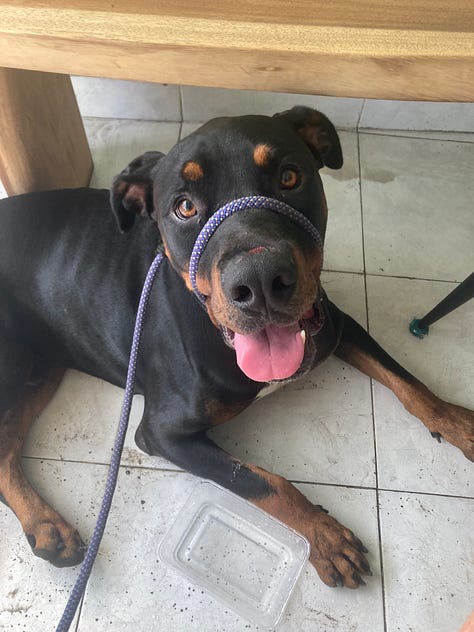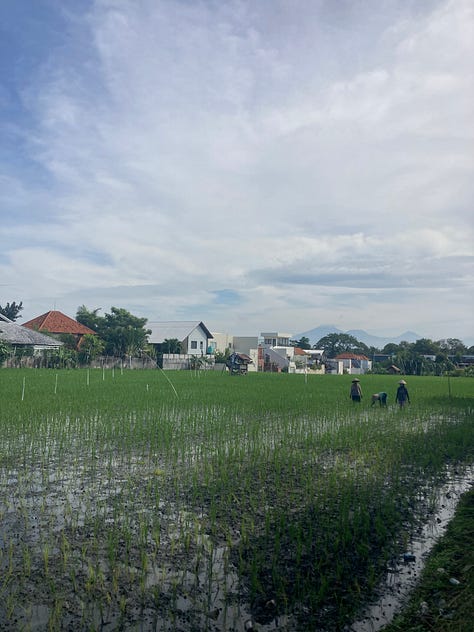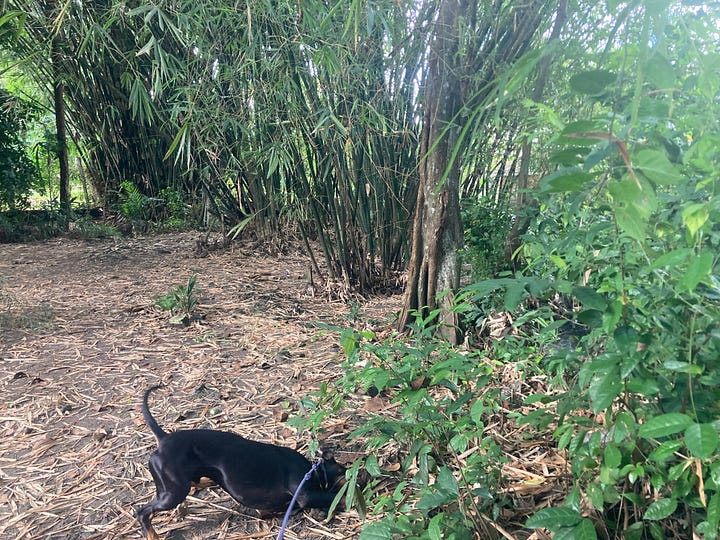Earlier this year I lost a contract I’ve had writing a daily news wrap for a particular industry client for more than 25 years. The contract was in fact often non-existent for that period, and when I worked full-time for an employer over those years, I subcontracted the work out to someone else. But at the point they terminated me, we had a contract, and they were 3 months late paying me. When they gave me notice (actually, they tried to end things overnight, so I had to remind them about the contract) I thought perhaps they were in financial difficulties, so I offered to renegotiate my rate. No, they said, they were “moving in a different strategic direction.”
Precisely 30 days after that, the AI version of what I used to write hit my inbox—obviously they didn’t realise I was subscribed myself. Filled with rage at how terrible the AI version was compared to what I usually delivered—it missed key stories of the day and cited third-rate blogs—I emailed them the version of what I would have done for comparison. The AI “would improve,” they insisted, and their decision was final.
***
This isn’t a rant about AI but rather an invitation to consider what it means to be human. What does it mean to live in a body? And to relate to other people, also beings with bodies. It’s this having-a-body, a fallible, mistake-prone, fleshy, emotion-producing, messy, body business that AI can’t replicate (beyond its hallucinations).
Is it a problem that AI doesn’t have a body, or is it a problem that we do?
Some anti-AI arguments seem to be repeats of what happens every time a wave of technology sweeps through society, wiping out some jobs, creating new ones (but still, relentlessly pushing capital up to the fewer and fewer and fewer at the top… so they can spend millions on a wedding, say, in a sinking city, with guests flown in private while we recycle bottles and make sure we take our keep cup to our local cafe).
Like most of us, I’ve reskilled multiple times—learning to type on a manual typewriter, upgrading to a word processor, then a little Apple Mac box, then a big desktop Mac, then Windows for work, then back to a laptop Mac etc., etc., with all the iterations of different software that also involved (remember Quark Xpress?)
AI feels different, and particularly frightening, when it comes to creativity. (Though apparently there will be new jobs… like article designers, rather than writers 😳.)
I like this illustrator’s take, who says, “The essence of art… is that there was somebody at the other end with the intent to express something. Communicating emotions from person to person through writing, composing or painting is inefficient and inherently human.” Does it matter if an AI was the creator? For me, as a human, it’s simply not that interesting if a person isn’t trying to communicate with me. The question then though of course, is what if it’s a human using AI in some way to communicate with me? What proportion of person vs AI would be okay for me?
The mother of one of my children’s friends has always sent WA messages, our main way of communicating, in beautifully quirky English—not her first language. She has charming turns of phrases and she’s perfectly easy to understand. Recently, she started to run her messages through AI for editing before sending them to me. She is flattened and homogenised. I hate reading these messages and want the old her back.
It feels like we’re outsourcing our humanity.
I feel a surge of rage every time I come across ad copy that begins, “Step into a world of…”, “Elevate your…”, “This is your sign to…”. If I wasn’t interested in your ad to begin with, I’m even less interested in an ad that has been written by AI. I want to deal with a human, much more of a human. (This, before we even consider the environmental costs.)
We have bodies. There is something irrefutable about this. We’re using our brains to communicate, but we’re using so much more than that.
I can imagine a two-tier world. One tier is for people who get to go outside and experience their bodies in the real world. The other is for those who operate exclusively online, able to be anywhere at their whim through an AI-crafted virtual reality, able to have all their needs met by a machine—just so long as we work out how to take care of the now-useless body. The question I suppose I have is: which tier would you rather have access to? The one challenging your body in order to access pleasure, or the one where it’s all easy, it’s all pleasurable?
***
Our neighbours just got a security camera for their front gate. Initially I was enraged (again!) at the violation of our privacy, as they can now see every time we leave or return home, its eyes sticking to my physical body as I move.
Coincidentally, right before they installed it, I had ordered a similar camera for Aldo the dog, who is crated when left alone. When it arrived, I set it up, went out for a late dinner, and was able to see that he was calm and asleep the whole time. Then I realised that I could speak to him through the camera! Then I realised there was a night mode, so I could see him even more clearly than when his black body was asleep on his dark-grey doggie bed! Miraculous!
I couldn’t help thinking of the military technology that likely had to be developed in order for us to get to this point. How the technology of war is improving the lives of those of us not yet being monitored, tracked, surveilled, and followed. If we don’t have a body, we can’t be monitored, tracked, surveilled, and followed. There’s nothing for that movement sensor to detect. But then if we’re exclusively online… every single thing can.
***
And I wonder how yoga ties into this. Whether it’s yoga, or archery, or zorbing, again AI could be involved in the sequencing, in the planning, in the analysis.
But when it comes down to it, the only way to do yoga is to use your body. We might be using our body to ultimately access the power of our mind through meditation, but there’s a sense that we are honouring both sides of the coin, the body and the mind, with a practice that has to be approached with the body.
I take some solace in the idea that maybe yoga, maybe any physical expression and movement, is a form of rebellion against this new order. Celebrating the body, revelling in its heaviness, it’s inflexibility (yes, see me try to touch my toes and not reach!), it’s imperfections, it’s unpredictability. There are no shortcuts.
























